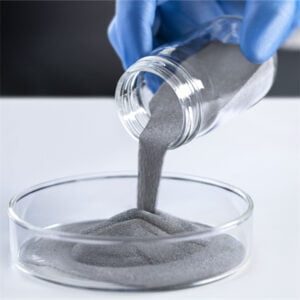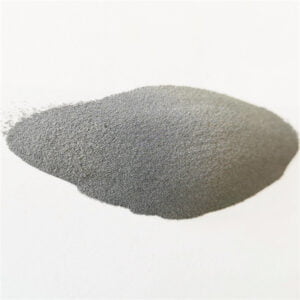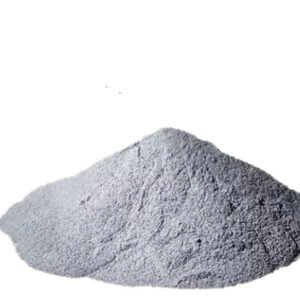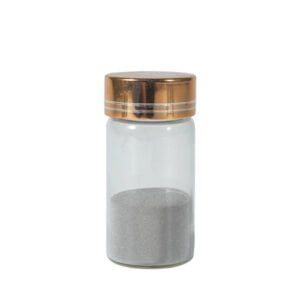Inconel 625 Powder
Table of Contents
Inconel 625 powder refers to a nickel-chromium-molybdenum alloy powder known for excellent strength, corrosion resistance, and high temperature performance up to 1000°C. This combination of properties makes inconel 625 a versatile superalloy for demanding applications ranging from aerospace components to chemical processing equipment.
This guide covers different types of inconel 625 powder including gas atomized variants, composition details, key properties and characteristics, manufacturing methods, applications, pricing, suppliers as well as pros, cons and FAQs when working with this high performance metallic alloy in powder form.
Types of Inconel 625 Powder
Common variants of inconel 625 powders include:
| Type | Composition | Characteristics |
|---|---|---|
| Gas atomized | 63% Ni, 21.5% Cr, 9% Mo bal. Fe | Spherical uniform particles ideal for AM |
| Plasma atomized | Same as gas atomized | Slightly smaller, more spherical particles |
| Milled/alloyed | Same composition | Irregular shaped, made from powder blending |
| Binder-jetting grade | Same + binders and flow agents | Formulated for binder jet 3D printing process |
Gas atomized and plasma versions exhibit precise particle size control and shapes preferred for additive manufacturing like laser powder bed fusion processes to achieve high final densities after sintering.
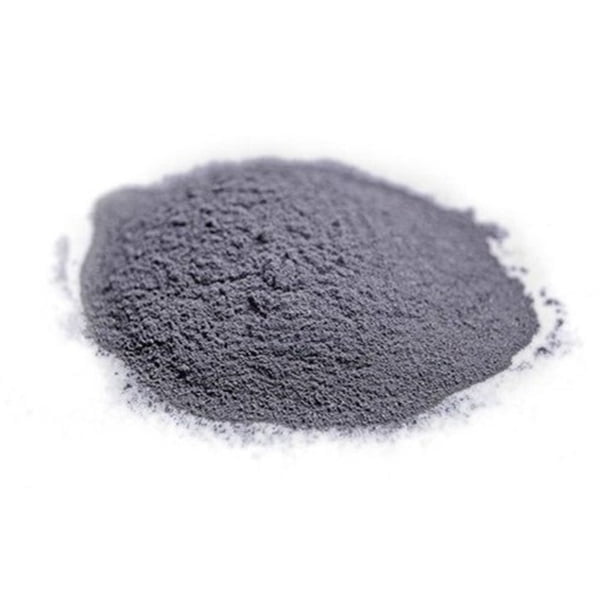
Production Methods
| Method | Description | Typical Output |
|---|---|---|
| Gas Atomization | High pressure inert gas disintegrates rotating inconel melt stream into fine droplets forming alloy powder on rapid solidification | Excellent spherical morphology ideal for AM applications |
| Plasma Atomization | Similar to gas atomization but using plasma energy to create higher temperatures and finer melt disintegration | Very spherical sub-45 micron particles possible; lower productivity |
| Vacuum Induction Melting | Precise composition ingots are crushed and milled into powder | Irregular shaped particles with higher porosity after consolidation |
Gas atomization strikes a balance between tunable particle size distributions and reasonable throughput volume for consistent alloy chemistry. Plasma methods allow smaller output batches with tighter particle tolerances.
Properties of Inconel 625 Powder
Benefits stemming from composition and production include:
| Property | Characteristics | Significance |
|---|---|---|
| High strength | Tensile strength 110,000 PSI (758 MPa) | Withstands heavy loads without deformation |
| Corrosion resistance | High chromium and molybdenum content creates protective surface oxide layer | Performs reliably in wet acidic environments common across industrial plants |
| Oxidation resistance | Minimum 65% nickel maintains properties up to 1000°C | Handles engine exhaust, chemical reactions, and extreme process heat without failure |
| Weldability | Composition formulated for superior joining and repairs | Easily integrated into large assemblies |
| Biocompatibility | Non-magnetic with excellent fatigue strength | Suitable for implants like orthopedic knee and hip joints |
The balanced design mix of durability, fabricability and extreme chemical resistance expands potential applications dramatically relative to more common metals like steels across hot and caustic operating contexts.
Applications of Inconel 625 Powder
Industry uses leveraging properties:
| Segment | Common Uses | Functions |
|---|---|---|
| Aerospace | Turbine blades, engine components | Withstands sustained extreme heat/pressure cycles |
| Chemical processing | Heat exchanger tubing, valves, pumps | Corrosion resistance across vast array of chemical environments |
| Oil and Gas | Wellhead equipment, offshore marine components | Performance plus easier on-site repairs through welding |
| Medical implants | Orthopedic joints, dental roots | Biocompatible strength tailored to anatomical loads |
| Marine hardware | Nuts, bolts, fasteners, drive shafts | Saltwater / seawater corrosion resistance |
| Additive manufacturing | Complex geometries across above industries | Design freedom of AM enhanced by alloy versatility |
Both creating one-off mission-critical aerospace fittings and batch scale commercial marine components displays the adaptability of inconel 625 to consolidate intricate, robust fabricated products across these key sectors.
-
 Ti45Nb Powder for Additive Manufacturing
Ti45Nb Powder for Additive Manufacturing -
 TiNb Alloy Powder
TiNb Alloy Powder -
 TiNbZrSn Alloy Powder
TiNbZrSn Alloy Powder -
 Ti6Al4V Powder Titanium Based Metal Powder for Additive Manufacturing
Ti6Al4V Powder Titanium Based Metal Powder for Additive Manufacturing -
 CPTi Powder
CPTi Powder -
 TC18 Powder : Unlocking the Power of Titanium Carbide
TC18 Powder : Unlocking the Power of Titanium Carbide -
 TC11 Powder : A Comprehensive Guide
TC11 Powder : A Comprehensive Guide -
 TC4 ELI Powder
TC4 ELI Powder -
 Best Ti-6Al-4V powder (TC4 Powder)for additive manufacturing
Best Ti-6Al-4V powder (TC4 Powder)for additive manufacturing
Specifications of inconel 625 powder
| Standard | Grade Definitions | Chemistry Requirements |
|---|---|---|
| ASTM B446 | Inconel 625 powder grades: standard, fine and ultrafine | Defines Ni, Cr, Mo, Ti, Al, C, Si percentages |
| AMS 5666 | Annealed / hot isostatic pressed variants | Specify C, Al, Ti limits in “annealed” state |
| ASME SB-443 | Pipe / tube alloy chemistry composition | Similar to ASTM B446 but also controls Nb and Co limits |
Tighter controls on trace elements like carbon, sulfur and silicon must be implemented for more demanding applications like nuclear reactors and liquid oxygen systems with specialized contamination risk assessments.
Suppliers and Pricing
| Supplier | Key Grades | Price Estimate |
|---|---|---|
| Sandvik Osprey | Gas atomized per ASTM B446 | $40 – $100 per kg |
| Carpenter Powder Products | Multiple size variants | $60 – $250 per kg |
| Praxair Surface Technologies | Hot isostatic pressed, plasma versions | $150 – $500+ per kg |
| Powder Alloy Corporation | Gas atomized, blended milled | $35 – $150 per kg |
Costs range widely from $35/kg for common gas atomized powder suitable for general additive manufacturing uses up to $500/kg for specialized hot isostatic pressed variants used in high liability applications like aerospace engines or offshore oil and gas remote monitoring equipment where certified mechanical performance is mandatory.
Remember – buy the specification not just the alloy type when comparing options and pricing.
Pros and Cons
| Pros | Cons |
|---|---|
| Resilient across extremely harsh environments | Costs over 5x more than common stainless steel variants |
| Retains properties across hundreds of °C temp range | Lower temperature material options exist for less extreme process conditions |
| Available as optimized printable powders | Lack of comprehensive certified codes and standards for AM |
| Resists vast array of corrosive chemicals | Requires strict handling precautions due to reactivity risks |
| Combines fabricability, weldability and workability | Still prone to chloride stress corrosion cracking so not impervious |
Companies must balance the superb performance window spanning difficult operating contexts like offshore oil rigs and jet engine turbine blades against supply chain risks managing specialty alloys.
Limitations and Considerations
Operating restrictions working with Inconel 625 powder:
- Managing titanium impurities below 0.4% needed for desired phase uniformity
- Post processing after additive manufacturing usually needed to achieve full properties
- Heat treatment cycling can enable grain coarsening and lower ductility
- Carbide precipitation risks over long term exposures for 500-700° C temps
- Hot isostatic pressing provides greatest density but sacrifices some tensile ductility
- validating supplier quality systems rigor avoids contamination control risks
Engineers leverage finite element modeling to qualify designs against loads. And prevention controls from air impurity sensors to finish grinding directionality further optimize performance.

FAQ
| Question | Answer |
|---|---|
| What particle size range is used? | 15-45 microns typical for laser powder bed fusion techniques |
| What is the typical bulk density? | Around 4 g/cc +/- 0.5 g/cc |
| What is the melting point? | 1290 to 1350 °C range |
| What post processing method yields best material properties? | Hot Isostatic Pressing is preferred but depends on application |
| What are typical tensile and yield strengths? | 125,000 psi (862 MPa) tensile; 110,000 psi (758 MPa) yield |
| What safety precautions are required for handling? | Inert gas environments preferred given fine powder reactivity |
| What contamination risks should be monitored? | Impurity elements sulfur, silicon, aluminum and titanium primarily |
| Does the powder have unlimited shelf life? | Generally suggested to re-test after 1 year sealed from oxygen/moisture |
Broad aerospace and energy adoption demonstrate capabilities but managing specialty alloys requires commensurate quality control and hazard assessment scaling.
Conclusion
As additive manufacturing ushers increased alloy customization freedom, inconel 625 delivers unmatched fabrication process compatibility from 3D printing intricate turbine components to welding 60 foot stacks of chemical reactor chambers. Yet sustaining access to specialized nickel alloys challenges supply chain risk management as emerging markets stretch limited production resources. Companies must therefore codify handling best practices and quality assurance testing regimens to ensure reliable performance across mission-critical oil rigs and patient implanted joints sharing little beyond nickel content yet subjected to radically distinct lifecycle duress. Procurement controls and distributed manufacturing methods will likely expand inconel powder accessibility if requisite expertise permeates workforce competencies at industrial scales. But only by accounting for each unique application context – from extreme operating temperatures down to traces of impurity catalysts – can engineers maximize this material family’s potential while navigating competitive specialty metals availability as product complexity ratchets across sectors. Inconel 625’s next 60 years will rely on cooperation of designers, metallurgists, printers and inspectors translating compositions into components sustaining 24/7 uptime despite escalating environmental and safety stakes.
Share On
MET3DP Technology Co., LTD is a leading provider of additive manufacturing solutions headquartered in Qingdao, China. Our company specializes in 3D printing equipment and high-performance metal powders for industrial applications.
Inquiry to get best price and customized Solution for your business!
Related Articles
About Met3DP
Recent Update
Our Product
CONTACT US
Any questions? Send us message now! We’ll serve your request with a whole team after receiving your message.

Metal Powders for 3D Printing and Additive Manufacturing
COMPANY
PRODUCT
cONTACT INFO
- Qingdao City, Shandong, China
- [email protected]
- [email protected]
- +86 19116340731









